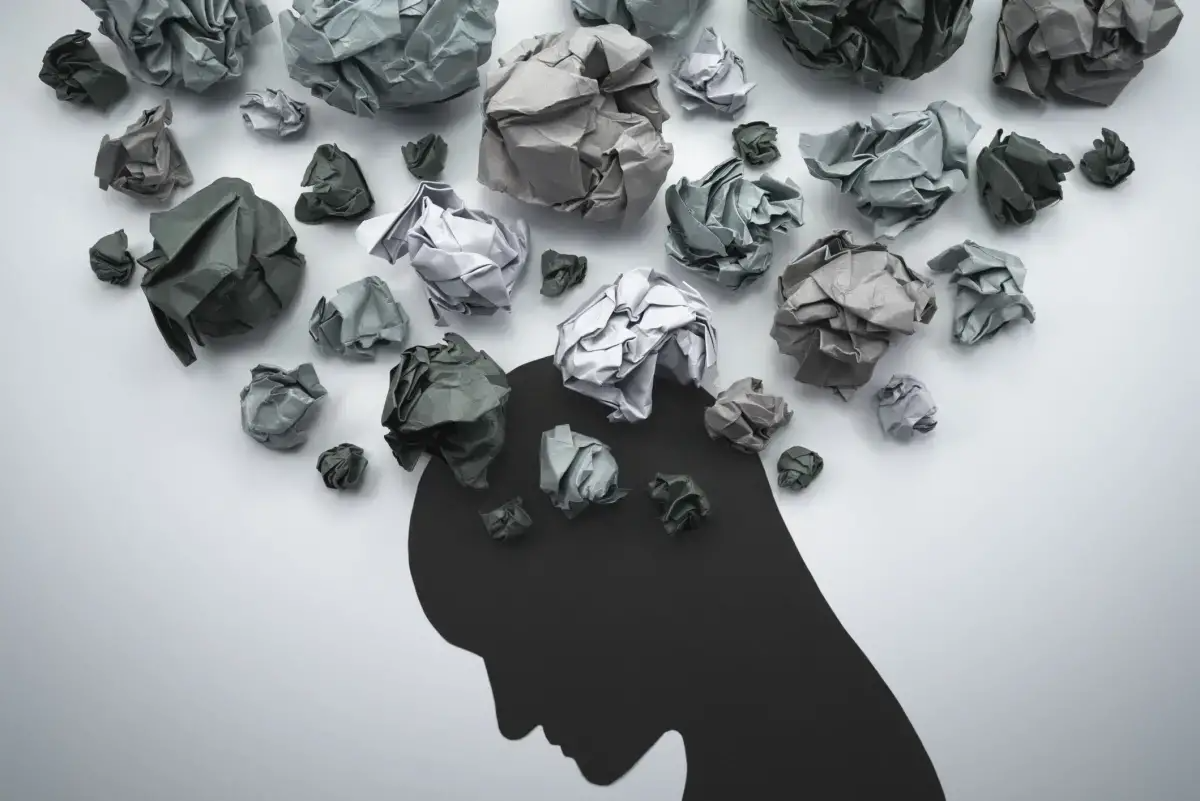Stress and risk cause anxiety which is a normal reaction. But if it becomes permanent, this might really restrict daily life. Knowing the science underlying anxiety lets people better cope with their symptoms and boost their mental health. The neurological processes of anxiety, its impact on the brain, and successful treatment approaches are all discussed in this post.
Understanding Anxiety Biologically
Anxiety is a sophisticated mental and physical condition developed from the brain’s reaction to assumed risks. While anxiety is normal on occasion, persistent and excessive anxiety could interfere with everyday living and cause anxiety problems including generalized anxiety disorder (GAD), panic disorder, social anxiety disorder, and phobias.
What Amygdala Helps To Do
Though small and almond-shaped, the amygdala in the brain helps much with the reduction of fear and anxiety. It evaluates possible hazards and induces a fight or flight mechanism in the body. Anxiety disorders are frequently linked with an overactive amygdala that raises the stress reaction even in nonthreatening circumstances. Neuroimaging research has demonstrated that those with anxiety disorders usually have a hyperactive amygdala. This makes people more afraid and anxious.
Prefrontal Cortex and Emotional Control
Rationalizing fear and soothing the amygdala enables the prefrontal cortex (PFC) to control emotions. PFC could not be functioning well in those with anxiety, compounding control of ideas. Executive tasks such decision making, impulse control, and emotional regulation are the domain of the PFC. When anxiety interferes with this area, people might have difficulty focusing, overanalyzing circumstances and ruminating far too much on the future.
Hippocampus and Processing of Memory
By deciding whether a circumstance is actually dangerous, the hippocampus influences anxiety levels by means of memory processing that is, by utilizing memory processing and itself is accountable for that. Anxiety issues may be aided by a small or injured hippocampus. This makes it hard to see actual and believed risks apart. Studies have revealed that long-term stress can lead to reduction of the hippocampus. It can lower the capacity to create good memories and support nervous actions.
2. Anxiety and Neurochemical Fluctuations.
The neurotransmitter the brain uses to control mood and emotions. An inconsistency in these compounds could help anxiety diseases. Chemical messengers transmitting signals among nerve cells are neurotransmitters. It changes our reaction to and perception of stress.
What Serotonin do
An important neurotransmitter that stabilizes mood and enhances the sensation of well-being is serotonin. Low serotonin levels are commonly associated with anxiety and depression. An anxiety and depression specialist often addresses this imbalance by recommending selective serotonin reuptake inhibitors (SSRIs). By increasing serotonin availability in the brain, SSRIs like sertraline and fluoxetine help regulate mood and reduce anxiety symptoms.
The Impact of GABA
An inhibitory neurotransmitter, Gamma aminobutyric acid (GABA) reduces neuronal excitability. People suffering anxiety typically experience reduced GABA activity. This results in anxiety and poor ability to relax. Benzodiazepines, for example, raise GABA activity to cause a tranquilizing impact. They do come with risks of withdrawal and dependence.
Dopamine and Reward Processed.
Motivation and reward processing depends in part on dopamine. Disturbances in dopamine communication can add to the avoidance behaviors and extreme anxiety seen in anxiety conditions. Individuals suffering with social anxiety disorder, for instance, could have changed dopamine pathways that cause social interactions to seem more menacing than helpful.
Fight or Flight Answer and Persistent Anxiety.
Stimulating the sympathetic nerve system helps ready the body for activity. While this response is advantageous in life threatening circumstances, being active over an extended period might have adverse consequences for health.
HPA Axis and Cortisol Discharge
By releasing the main stress hormone cortisol, the Hypothalamic-pituitary-adrenal (HPA) axis controls the stress reaction. Chronic anxiety results in too much cortisol release. which could affect cognitive ability. can lower the immunity. It can raise the likelihood of heart disease. Over time, high levels of cortisol might help cause diseases including metabolic issues, high blood pressure, and decreases in memory performance.
Embarrassing Episodes of Worrying and Anxiety
So the brain grows very responsive to dangers when stress lasts throughout. These symptoms of anxiety only serve to strengthen. This collection is challenging on people seeking to overcome persistent worry and panic. Stress and anxiety frequently accompany one another. Which underlines the need of administration to stop worsening symptoms.
Long-term Effects of Anxiety on Brain Health Include
Long-term worry can cause one’s brain to undergo functional and structural alterations.
Anxiety Disorders and Neuroplasticity
The capacity of the brain to adapt and rearrange itself is neuroplasticity. But persistent anxiety can cause negative neuroplasticity even if this mechanism is good for learning. It builds thought processes. Some of the methods that may help to reprogram the brain to alleviate anxiety are cognitive restructuring, mindfulness training, and exposure therapy.
Brain Structure Changes
- Rising amygdala: Constant anxiety can lead the amygdala to become hyperactive. This makes managing fear more challenging.
- Lessened hippocampal volume: A smaller hippocampus is linked to problems in discerning actual and perceived threats.
- Poor connectivity between the PFC and the amygdala makes it hard to manage anxious thoughts.
Smart Techniques for Conquering Anxiety
Knowing the science of anxiety helps one to apply better coping strategies. These are few points grounded in evidence:
Cognitive Behavioral Treatment (CBT).
Highly effective therapy, cognitive behavioral therapy enables people to change negative thought processes and build good coping mechanisms. Research indicates that CBT improves emotional control and boosts prefrontal cortex function. People can use methods including exposure therapy and cognitive restructuring to handle and confront uneasy thoughts.
Professional guidance and therapy services are offered by State of Mind Counseling. So, if you’re thinking about CBT for anxiety management, you might want to consider offering them.
Mindfulness as well as Meditation
Mindfulness training improves frontal lobe activity and lowers amygdala activity. This enables individuals to be present and lower their level of worry. Meditation boosts emotional stability and helps to grow gray matter in the hippocampus.
Conditioning as well as Physical Activity.
Normal physical activity boosts the quantity of endorphins and serotonin. Reduces anxiety symptoms. Especially beneficial are aerobic exercises including yoga, swimming, and running.
Nutritional Treatment
Reduced symptoms of anxiety and better brain health can be aided by a well balanced diet high in omega3 fatty acids, magnesium, and probiotics.
Pharmacological Treatment and Drugs
In cases of extreme anxiety, prescription drugs like SSRIs, benzodiazepines, and beta blockers could help level out neurotransmitter levels.
The Future of Anxiety Investigation
Neuroscience and psychology research developments still reveal fresh methods of anxiety treatment. Researchers are hoping to discover:
- How gut microbiota affects mental health.
- Anxiety genetic disposition’s impact.
- Implementing artificial intelligence-based therapy in customized therapy schedules.
Final Thoughts
The brain’s structure and chemistry underlie anxiety disorders. Even if it does serve to protect. However, constant anxiety may disturb general wellbeing and normal brain operations. Aware of the neurology of anxiety, people can effectively manage symptoms and locate proper therapies.
Check out state of mind counselling for further advice on dealing with anxiety.
Frequently Asked Questions
1. In the brain, what increases anxiety?
Disruption of neurotransmitters, including a more active amygdala, GABA and serotonin, and release of high cortisol due to persistent stress all contribute to anxiety. The brain’s ability to control emotions is affected by these effects, which intensify anxiety and fear.
2. How does long-term anxiety affect brain structure?
An increased amygdala, a shrinking hippocampus, and a decrease in prefrontal cortex connectivity may all be the result of long-term anxiety. These changes in order complicate the ability to control anxious thoughts, process memories, and handle fear.
3. Without medication, does anxiety respond to triads?
Of course, without medication, anxiety can be addressed by cognitive behavioral therapy (CBT) mindfulness exercises, physical activity , and can be controlled through lifestyle changes. Although very few people find comfort in non-pharmaceutical methods, really serious problems may require medical attention.
4. With anxiety, how does cognitive behavioral therapy (CBT) help?
By questioning negative thought processes and supporting good coping strategies, CBT helps rewire the brain. It strengthens prefrontal cortex function and enables people to better control disturbing thoughts.
5. Does anxiety permanently damage the brain?
Although anxiety can lead to temporary structural and functional changes in the brain, these effects can usually change with good therapy and control. Thanks to neuroplasticity, the brain can recover and change over time.
6. Can lifestyle changes help reduce anxiety symptoms?
Lifestyle changes such as a good diet, regular physical activity, proper sleep, and stress management techniques can reduce anxiety symptoms. will dramatically reduce and improve general mental health.
7. For anxiety, when should one seek professional help?
If daily life, relationships, or job performance is affected by anxiety, it is advisable to seek treatment. Anxiety that is chronic enough to cause physical symptoms, panic attacks, or avoidant behaviors should be treated medically or psychologically.








